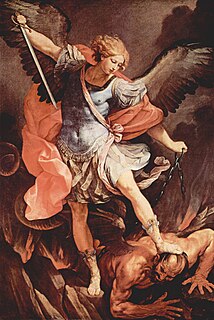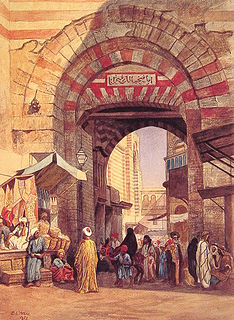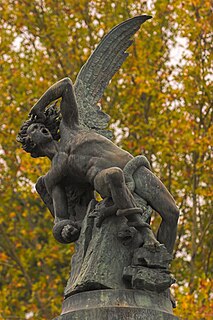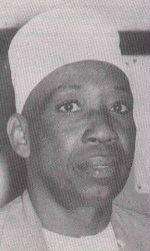Utenzi wa Shufaka (Swahili: "Poem of Mercifulness") is an utenzi (classical narrative poem) in Swahili literature. It is composed of 285 stanzas of four lines of eight-syllables each. The poet-narrator of utenzi offers details of his lineage but never identifies himself.

Swahili, also known as Kiswahili, is a Bantu language and the first language of the Swahili people. It is a lingua franca of the African Great Lakes region and other parts of eastern and south-eastern Africa, including Tanzania, Kenya, Uganda, Rwanda, Burundi, Mozambique, and the Democratic Republic of the Congo (DRC). Comorian, spoken in the Comoros Islands is sometimes considered to be a dialect of Swahili, though other authorities consider it a distinct language.
Utenzi or utend̠i is a form of narrative poetry in Swahili. Its name derives from the fact that it usually describes heroic deeds. Well-known examples of utenzi are the Utendi wa Tambuka by Bwana Mwengo, the Utenzi wa Shufaka, and the Utenzi wa vita vya Uhud compiled around 1950 by Haji Chum. Reciting utenzi is a popular pastime on weddings and other ceremonies and feasts; often, specialized narrators are invited to do this.
Swahili literature is, generally speaking, literature written in the Swahili language, particularly by Swahili people of the East African coast and the neighboring islands. It may also refer to literature written by people who write in the Swahili language. It is an offshoot of the Bantu culture.
Contents
The only old manuscript of the poem known is held in the library of the German Oriental Society in Halle. This copy, which is written in Arabic script, was sent by Ludwig Krapf from Africa (most probably, German East Africa) in 1854. The poem was published in 1887, followed by a Latin-script transliteration in 1894 by Carl Gotthilf Büttner. Jan Knappert offered the first English translation in 1967, though he also introduced a number of significant mistranslations.
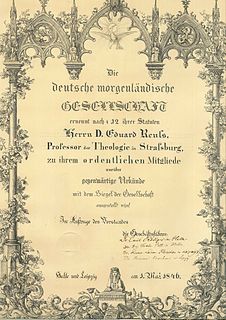
The Deutsche Morgenländische Gesellschaft, abbreviated DMG, is a scholarly organization dedicated to Oriental studies, that is, to the study of the languages and cultures of the Near East and the Far East, the broader Orient, Asia, Oceania, and Africa.

The Arabic script is the writing system used for writing Arabic and several other languages of Asia and Africa, such as Persian, Kurdish, Azerbaijani, Sindhi, Pashto, Lurish, Urdu, Mandinka, and others. Until the 16th century, it was also used to write some texts in Spanish. Additionally, prior to the language reform in 1928, it was the writing system of Turkish. It is the second-most widely used writing system in the world by the number of countries using it and the third by the number of users, after Latin and Chinese characters.

German East Africa (GEA) was a German colony in the African Great Lakes region, which included present-day Burundi, Rwanda, and the mainland part of Tanzania. GEA's area was 994,996 square kilometres (384,170 sq mi), which was nearly three times the area of present-day Germany, and double the area of metropolitan Germany then.
The original title is Chuo cha Utenzi ("A book of poetry in utenzi meter"). This was changed by Büttner to a title he felt was more descriptive.
